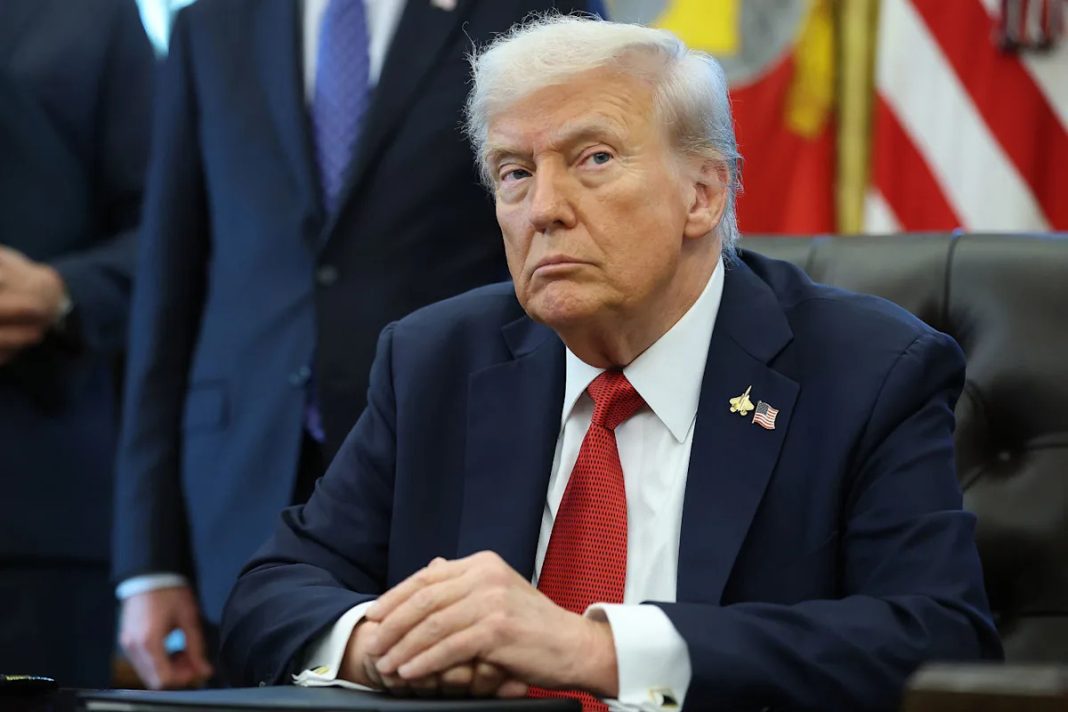On Wednesday, the Trump White House sent a “Compact for Academic Excellence in Higher Education” to nine top U.S. universities. The memo offers these institutions a devil’s bargain: In exchange for a promise of preferential access to federal grants, universities must follow the administration’s dictates on admissions, tuition, grading, student discipline, campus speech and protest rules, faculty and staff hiring, athletics, and many other domains that go far beyond federal law.
Any institution that yields to these broad and intrusive demands would give up its legal rights and would forever be subservient to the whims of the government. If the Justice Department decides that a signatory violated the vague terms of the agreement, that university would be forced to return all federal money it received in that year — along with any private donations at donor request.
As faculty members at two of the universities that were reportedly “invited” to sign the initiative, we would personally benefit from the promises it makes. Both of us have received federal funding to support our research and the training of future scientists. But we strongly encourage all universities — including our own — to reject this “Compact” or any future version of it.
Most importantly, the administration’s dictates would be an impermissible overreach into the free speech of private institutions, according to legal experts across the political spectrum. The government may not use its funding to compel speech or to force recipients to give up their constitutional rights, which is precisely what the Trump administration seeks to do. The compact would even require that “all university employees, in their capacity as university representatives,” abstain “from actions or speech relating to societal and political events except in cases in which external events have a direct impact upon the university.”
We share concerns that debates on college campuses are often too narrow and can be influenced by administrative position-taking, but the solution to these problems is not government coercion, especially when undertaken in obvious bad faith. If the administration really wants to protect academic freedom, for example, why does it require punishing only academic units that “belittle” conservative ideas? That’s why the nonpartisan Foundation for Individual Rights and Expression warns that the plan does not promote reform but instead risks creating “government-funded orthodoxy.”
Moreover, giving preferential treatment to submissive institutions would undermine the excellence of American science. To reach goals like curing pediatric cancer and developing better treatments for opioid addiction, we need to invest in the best research ideas, not divert support to weaker studies from universities whose leaders traded away their independence for cash. Government funding should reward scientific merit.
We are encouraged that Dartmouth’s president has publicly stated that “we will never compromise our academic freedom and our ability to govern ourselves,” but it is important that Dartmouth, Vanderbilt and the other targeted institutions definitively reject this compact. Indeed, the entire idea of a negotiated deal for special status should be rejected across higher education. If the administration wants to change policy, it should use existing regulatory procedures, not engage in lawless executive overreach.
Refusing to make a “deal” is all the more important given the White House’s track record of making further demands of law firms, media outlets and universities that previously caved to the president or his administration. Rather than try to negotiate for better terms with an administration that has shown itself to be an unreliable partner, universities should stand together in support of academic freedom and self-governance.
If they do not, the future is grim. The clear aim of the compact is to place universities under federal control and to impose an ever widening and changing set of demands on them. Our institutions might seem to benefit from making a “deal” in the short term, but everyone loses in a world where American universities sign away their independence.
This article was originally published on MSNBC.com

